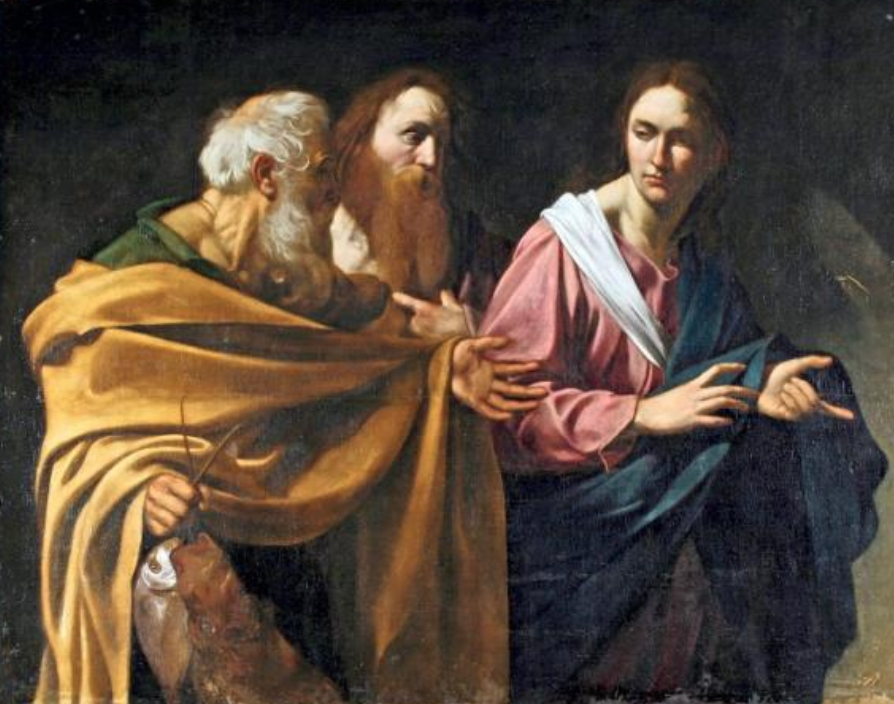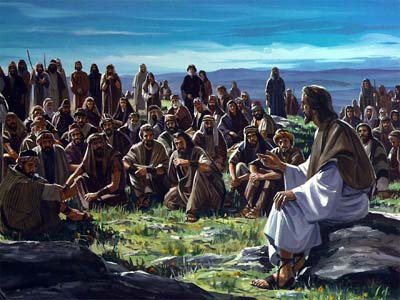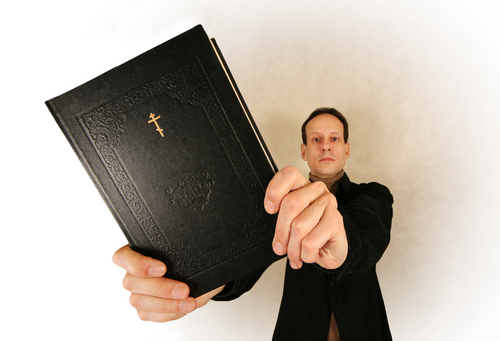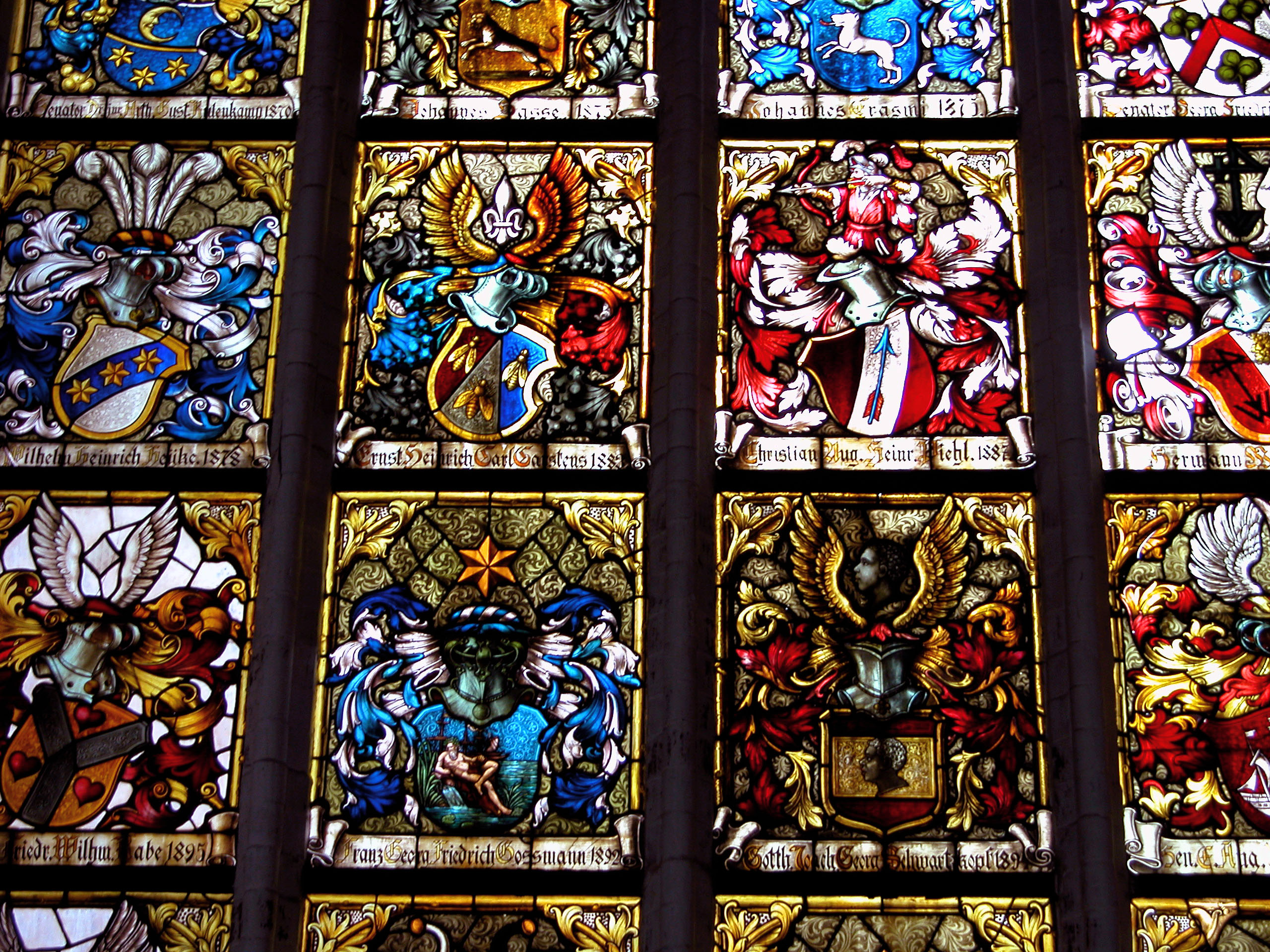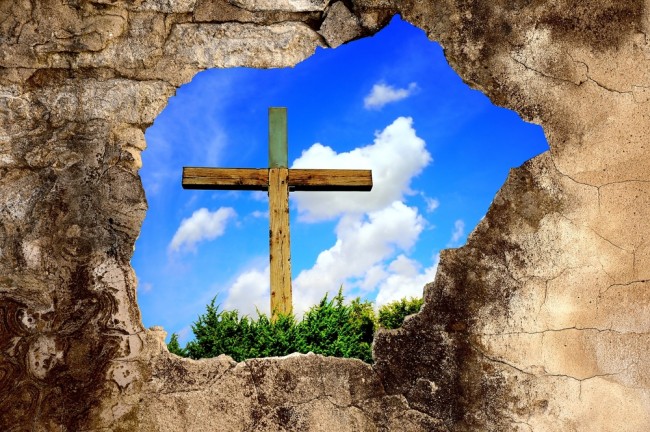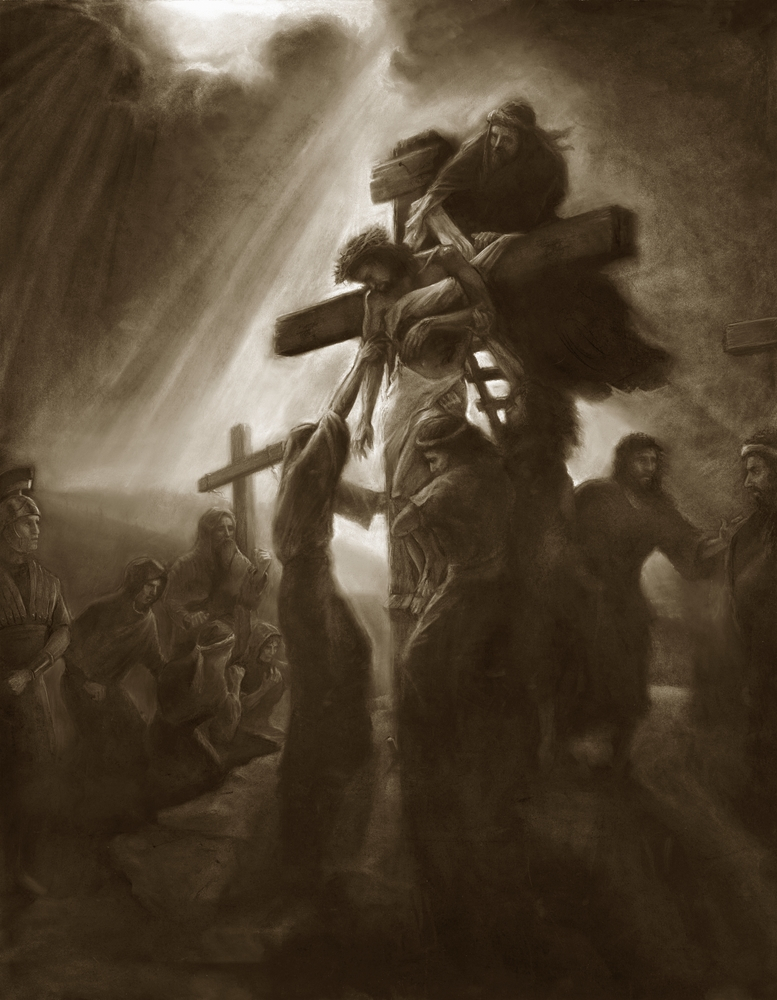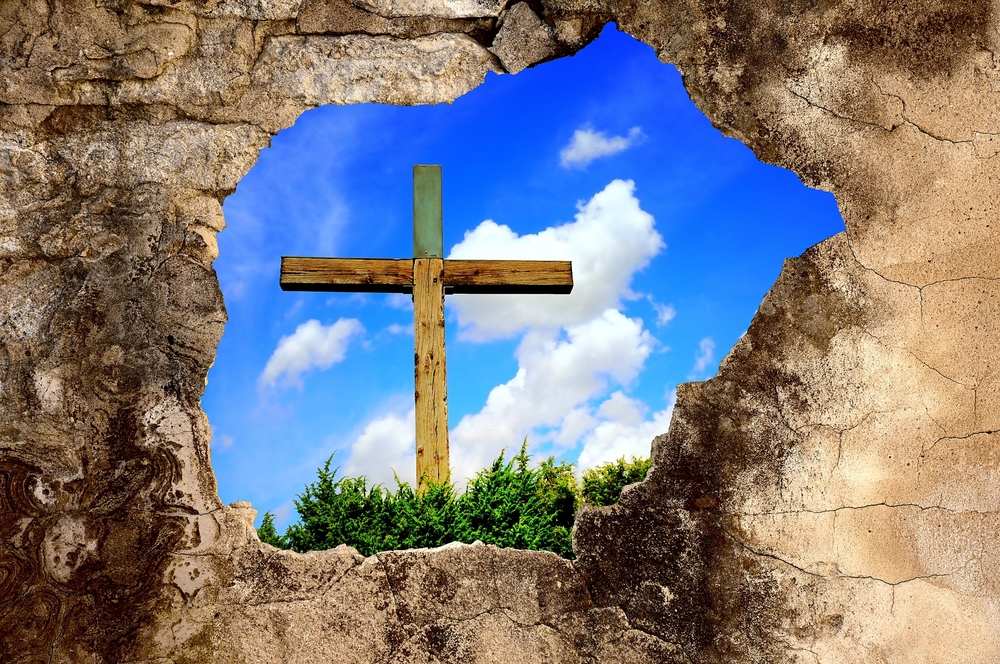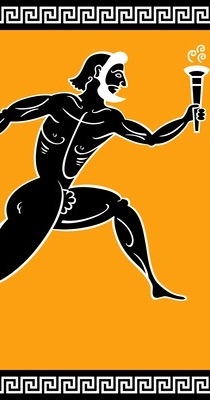I’m not sure why we can be so idealistic about human love when human love is profoundly imperfect and so often unreliable.
The Second Coming of Christ is an erroneous idea that developed among Christians in the last third of the first century AD. It weakened the assurance that the first Christians had that the kingdom of God had come.
In his first letter to the Corinthians, Paul said, "Everything is lawful, but not everything is beneficial." This was toward the end of a letter in which he had urged the members of the church in Corinth to follow a higher law -- to submit to the law of love. Later in the same letter, he said, "Don't look for your own advantage, but look out for one another."
I feel like we are being strangled, the life choked from us – disbelief, sorrow, fear, rage. Violence in the streets, jails, and cages at our border, targeting black and brown men, women, and children; a virus stalking us all, turning familiar comforts into threats.
It is good for us to be here. Be attentive. The Webster Dictionary defines an ‘aha moment’ as a point in time
Every time I enter into mindful prayer, I start by gazing into a mirror, dimly. A dim inner mirror, gazed at with dim inner eyes. Slowly I polish the mirror with loving, open, non-judgmental attention. My inner eyes begin to adjust and focus. And I begin to see not just the face I expect or want to see, but the whole picture of my thoughts, sensations, and urges - physically, mentally, and spiritually. Warts and stray hairs and happy smile and all! Behind the eyes that appear in the mirror I begin to awaken to the subtle eyes of the One who is doing the seeing. And then we begin to see, face to face...
“LAUDATO SI’, mi’ Signore” – “Praise be to you, my Lord”. In the words of this beautiful canticle, Saint Francis of Assisi reminds us that our common home is like a sister with whom we share our life and a beautiful mother who opens her arms to embrace us. “Praise be to you, my Lord, through our Sister, Mother Earth, who sustains and governs us, and who produces various fruit with colored flowers and herbs”.
(Excerpt from Theology From Exile Vol. III, The Year of Mark by Sea Raven, D.Min.) Acts 10:34-43; Isaiah 25:6-9; Psalm 118:14-24; 1 Corinthians
The incarnational faith of Jesus invites us to live more deeply into our spiritual convictions day by day. This type of faith invites us not just into knowledge, but into lived experience. In today’s digital age, we can get just about any information we want over the internet. What we desire and crave, in life, and in faith, is not simply knowledge, but inspiration, experience, and integration.
The church as we know it came about when one group of believers was opposed by a dissenting group. Then it became necessary for each group to define their concepts of Christianity and to label all others heretics.
The Greek word for “faith” in the New Testament is pistis, which occurs 243 times. As a noun, pistis is used as a technical term for “forensic evidence.” In other words, faith is not blind; we must investigate to establish the facts. I agree with retired Episcopal bishop, John Shelby Spong, who writes, “My problem has never been my faith. It has always been the literal way that human beings have chosen to articulate that faith.” To many Christians, faith means believing highly suspect claims, which is a problem for me. Thinking isn’t a sin. God created our minds and I’m certain that we were intended to use them.
I think Christian missionaries should live among the people exhibiting their Christianity in their daily lives. If the people see something in their lives that is missing in their own lives they will ask about it, which gives the missionary permission to tell them about their faith.
For Christians grace is God’s gift of pardon. According to William Barclay the Greek word for grace was originally a military term. When an emperor came to the throne or celebrated a birthday, he would give his troops a donatirim (donation), which was a free gift that they had not earned; it was given out of the goodness of the emperor’s heart. This idea was picked up by the Christian scripture writers when they wrote about the grace of God. Grace is something that is unearned and undeserved – unmerited pardon.
Can we actually believe that because Eve persuaded Adam to eat a forbidden apple the entire human race is doomed to hell? Can we truly believe that for several thousand years there was no chance for any human to be saved, even though none of them had anything to do with Adam and Eve’s disobedience in the Garden? Isn’t it ludicrous that a child born today is doomed because Adam and Eve disobeyed God? That creation/damnation scheme sounds more like devil-worship than God-worship.
When it comes to the existence of the devil, people normally have one of two reactions: they dismiss the devil and scoff at the idea that there is such an entity, or they exalt the devil, and attribute far more to him (or it) than is deserved. In a recent Gallup poll, 70% of Americans believe in the devil. Half of those surveyed believe that he (this evil force is most often referred to in masculine terms) is a personal force, while the other half believes he is an impersonal force. Let us see what the Bible says about Satan, the devil and the evil one.
In the short interval between hearing the words and partaking of the symbolic body of Christ, I was enveloped in one of those rare moments of total oneness with all that is. The word “body” became present to me in a way I had not previously experienced. A feeling of connectedness with all mortal life swept over me. And beyond that an awareness of my aliveness being one with the aliveness of the earth and universe.
Bonhoeffer believed that in the future a religionless Christianity—stripped of its religious garments—would be limited to two things: prayer and action.3 He believed that through these two acts Christians would learn to see the world from a new perspective, with the eyes of those at the bottom of society—the people that Matthew called “the least of these.” For Bonhoeffer, prayer—especially intercessory prayer—becomes important because it creates a powerful sense of empathy and solidarity with the people one brings before God. This, in turn, motivates one to engage in “righteous” action—the seeking of justice in human society.
Eschatology is the study of last things, the final events in history, the ultimate destiny of humanity, the end of the world. Major issues in eschatology include the rapture, the second coming of Jesus, the tribulation, Millennialism, and the last judgment. Most of the Christian books I have read do not seriously concern themselves with eschatology, but the Left Behind series of books made it a popular topic. All twelve novels in the series made the New York Times bestselling fiction list – note: the fiction list. Prior to the Left Behind novels of the 1990s, Hal Lindsey’s 1970s bestselling books, including The Late Great Planet Earth, were also bestsellers.
Easter calls attention to the traditional, fundamental “beliefs” associated with the Christian religion – if only for a day. The secular world pays little attention to the nuances of Christian “faith” in a post-Christian world. Easter is a liturgical season that lasts for seven weeks. In Christian tradition, the time between the resurrection of Jesus and his “ascension” into the sky (Pentecost) replaces the time between the Jewish Feast of the Passover and the giving of the law to Moses on Mt. Sinai. Not only do most Christians concentrate on the resurrection story – often literally. Editorial writers for supposedly sophisticated secular media seem to feel obligated to attempt to find meaning in the traditional religious legend of a dead man walking out of his tomb. But “faith” does not mean “belief.” “Faith” means “trust.” “Faith” further means “confidence.”
We need to subject the resurrection stories of the New Testament to the same critical analysis as we did the crucifixion. So let us examine Paul’s writings and the gospels in an attempt to discover what the event we call Easter really was.
One of the most reliable facts concerning Jesus is that he was crucified during the reign and by the action of the Roman procurator, Pontius Pilate, who served by appointment of the Caesar from 26-36 CE. The Roman senator and historian Tacitus referred to Jesus’ execution by Pilate in his Annals, which was written circa 116 CE. Beyond that, however, there is not much historical evidence.
The church sign can be easily read by anyone driving by: “You can’t be a devoted follower of Jesus unless you are part of a local church.” Does the church that posts this sign not trust the people with Jesus’s message? What is the meaning of “incarnation” if not “embodiment” by individual persons of the spirit of the Christ? Is the “Body of Christ” for members only? The Apostle Paul created the metaphor of the “Body of Christ” as the community of followers. In 1 Corinthians 10:16-17, he explains the meaning of the ritually-shared meal: “The cup of God’s gracious benefits that we consecrate means that we are involved in the blood of the Anointed, doesn’t it? The bread that we break means that we are involved in the body of the Anointed, doesn’t it? That there is one loaf means that we who are many constitute one body, because we all partake of the one loaf.” In Romans 12:5 he says, “Just as each of us has one body with many parts that do not all have the same function, so although there are many of us, we are the Anointed’s body, interrelated with one another.”
Judas Iscariot, the anti-hero of the story of the crucifixion, has been heaped with scorn and ridicule over the centuries. “Judas” is not used as a child’s name because it became the synonym for betrayal, for being a back-stabber. In Christian art, he is portrayed in dark, sinister tones. Events in western Christian history from the Inquisition in the fourteenth century to the expulsion of the Jews from almost every country of Europe at one time or another, to Martin Luther’s call for the burning of synagogues, to the violence and killing frenzy of the Holocaust in the twentieth century are all rooted substantially in Judas and because he was a Jew, applied to all Jews. Even his name is identical with the name by which the entire Jewish nation was known… Judas is simply a Greek spelling of Judah.
In Matthew’s midrash of Isaiah’s prophecy, Jesus tours all over Galilee, teaching in the synagogues, curing all kinds of diseases, and proclaiming that God’s kingdom has come. The verses in Chapter 4 selected by the creators of the Revised Common Lectionary for the third Sunday after the Epiphany are the preface to Matthew 5:1 through 7:29, the great Sermon on the Mount. Jesus walks by the Sea of Galilee, and invites his disciples to leave their nets and become “fishers for people,” traditionally interpreted to mean saving souls from hell. But John Dominic Crossan, points out that Jesus could have brought his message anywhere in Roman occupied Judea. Why Galilee? Why Capernaum?
The God I Don't Believe In
When it comes to religion, Atheism is as good as any, since religion is simply about how you put some order in your otherwise chaotic world, and come up with a list of things you believe or disbelieve. The atheist and the theist both want to ask the same basic question: Do you believe in God or not? Often they are not interested in going much deeper than that. The oft-repeated response a famous preacher once gave to a religious skeptic went, “Tell me about the God you don’t believe in. Chances are I don’t believe in that kind of God either.”
I try to carry God into all I do including parenting. This does not translate into threats or punishment about God watching but into teaching about kindness and love.
Jesus' Way of Confounding the Trophy-centric Ways of this World
The ancient Olympic games were a series of athletic competitions between city-states. The results determined who were the winners, and who were the losers. But during the games, any conflict between the warring states was forbidden. If ever there was a time when that Olympic torch should be lit and never be extinguished, perhaps this is it. But how? It seems international good sportsmanship inside the stadium can only be assured by heavy security on the outside; where unruly competing self-interests would seek to turn winning at all cost into a blood sport. The previous Words & Ways commentary explored a foolish kind of wisdom once espoused by a Galilean sage through his teaching, the parables he told, and even the seeming absurdity found in his miracles (see "The Foolishness of Jesus"). It is this same Jesus tradition that also proposes such counter-cultural notions that one can “win by losing," and “the last shall be first." Here's John Bennison's latest commentary from Words & Ways.
Paul insists, "It is for freedom that Christ has set us free." Yes, freedom. Paul was the Apostle of human freedom.
2) The Hebrew scriptures, or the Old Testament, represent a religious tradition that is independent of the later Christian faith. The Hebrew scriptures aren't about Jesus, although the Christian scriptures include many references to the Hebrew scriptures. To honor the fundamental differences between the two sets of scriptures doubles the spiritual significance of the entire Bible.
There is much discussion in the public arena about homosexuality, access to birth control and access to abortion. I have not heard one person say anything about First Amendment Rights in connection with homosexuality or access to birth control.





